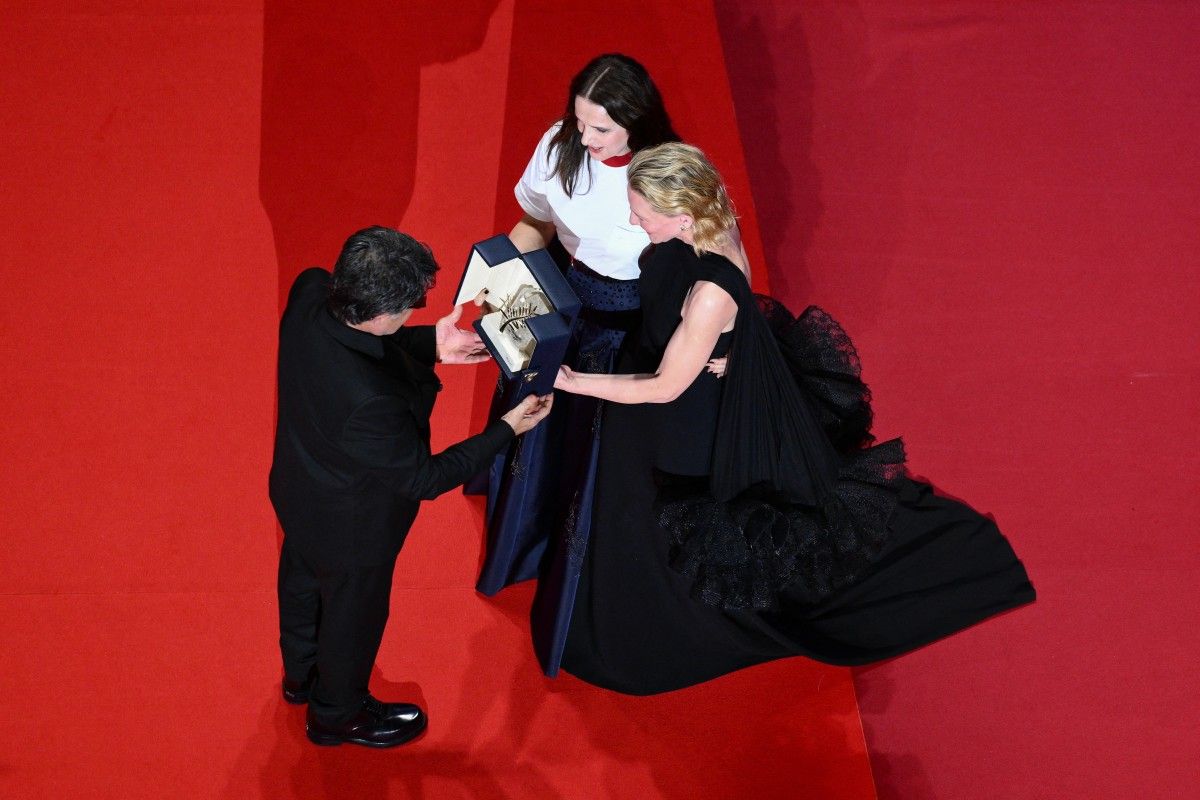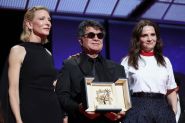
The 78th Cannes Film Festival wrapped up on May 24, 2025, with a celebration of socially conscious cinema. With Juliette Binoche presiding over the jury, the festival set the tone early—highlighting films that probe today’s world, blending introspection with social and political critique.
After ten intense days, Cannes brought down the curtain in an atmosphere of artistic elevation. It was a festival that felt political, raw and deeply human—where voices rose to fill the silence onscreen. As always, the iconic “Aquarium” piece from The Carnival of the Animals by Camille Saint-Saëns played before each red carpet entrance, stirring goosebumps and setting the stage in a space where fiction and reality blur.
Jafar Panahi: A Defiant Voice Rewarded
In a hall holding its breath, Jafar Panahi was awarded the Palme d’Or for A Simple Accident, a gripping, tightly-wound film shot after his release from prison. Long banned from leaving Iran, Panahi—an emblem of resistance—delivers a harrowing chamber piece about a victim and a perpetrator on a tragic road trip.
Back in 2010, Juliette Binoche, after winning Best Actress at Cannes for Abbas Kiarostami’s Certified Copy, held up a sign bearing Panahi’s name—he was then imprisoned and on a hunger strike. That gesture sparked a global outcry, leading to his release just three days later. Fifteen years on, it was Binoche herself who presented him the Palme d’Or. “Cinema has the creative power—and the duty—to stand with those who suffer,” she said.
“It’s really hard to speak,” Panahi began, visibly emotional. “Before anything, I want to thank my family for all the times I was absent.” Then came a heartfelt plea to the diaspora, “I couldn’t have made this film without a committed team. Now is the time to ask all Iranians worldwide to set aside our problems and differences. What matters most is our country—and its freedom.”
Cate Blanchett, hosting the awards, added, “Cinema is life. It’s dangerous. It’s impolite.”
Joachim Trier and the Power of Connection
The Grand Prix went to Sentimental Value, a family drama by Norwegian director Joachim Trier. It is a touching film about reconciliation through art. Trier dedicated the award to his team and his grandfather, a wartime resistance fighter, actor and musician. “We’re living in a time overwhelmed by images. Cannes reminds us of the value of images we choose to watch—those we give our time and empathy to.”
Women Take the Spotlight
In The Youngest Daughter by Hafsia Herzi, a 23-year-old actress—lesbian, Muslim and a sports science student—was front and center. With heartfelt sincerity, she accepted her Best Actress award: “Thank you, Hafsia, for your courage, your trust and your boldness.”
Mascha Schilinski, who tied for the Jury Prize with Sound of Falling (alongside Oliver Laxe’s Sirat), honored women’s voices in her speech, “I dedicate this award to all women. Your voices matter. Don’t give up on your stories.” Her historical, sensory-rich film explores generational trauma passed down among women in a remote northern German farm.
Brazil in the Spotlight
Brazil took home two major honors. Kleber Mendonça Filho won Best Director for The Secret Agent, a faux spy thriller that dives into the shadows of Brazil’s military dictatorship. Lead actor Wagner Moura earned Best Actor for his powerful, layered performance. “Cannes is the cathedral of cinema,” he said. “Brazil is a land full of beauty and poetry, and I’m proud to accept this award.”
A First for Iraq
For the first time in the festival’s history, an Iraqi film won the Camera d’Or. The President's Cake by Hasan Hadi—shown in the Directors’ Fortnight—follows a young girl forced to bake a cake for Saddam Hussein’s death anniversary, under threat of death or imprisonment. Jury president Alice Rohrwacher called it “a haunting work, like a ghost we couldn’t shake.”
The Eternal Dardenne Brothers
John C. Reilly brought levity to the evening. While presenting the Best Screenplay award, he serenaded the crowd with La Vie en rose, guitar in hand. The prize went to the Dardenne brothers for Young Mothers, a multi-character story about five women facing precarious motherhood. Already two-time Palme d’Or winners, the Dardennes further cemented their place as giants of social cinema.
Luc and Jean-Pierre Dardenne have once again made their mark at Cannes, earning their 7th award in 10 official selections—this year, with another exploration of raw humanity. True to their signature understated and socially conscious style, the Belgian brothers remain masters of realist cinema. They continue to lead the festival’s all-time honors, surpassing icons like Francis Ford Coppola and Ken Loach. Their body of work, consistently focused on society’s overlooked and marginalized, has already brought major talents to light, including Émilie Dequenne (Rosetta, 1999) and Olivier Gourmet (The Son, 2002), both of whom received acting awards for their roles.
A Global, Resonant Lineup
In total, 8 of the 22 competition films were honored. This year’s selection reflected strong geographic diversity, with 14 countries represented. Female participation saw a modest rise, with seven women directors in the lineup. From Iraq and Iran to Brazil and Germany, the festival spotlighted powerful stories of resistance, self-discovery and liberation.




Comments